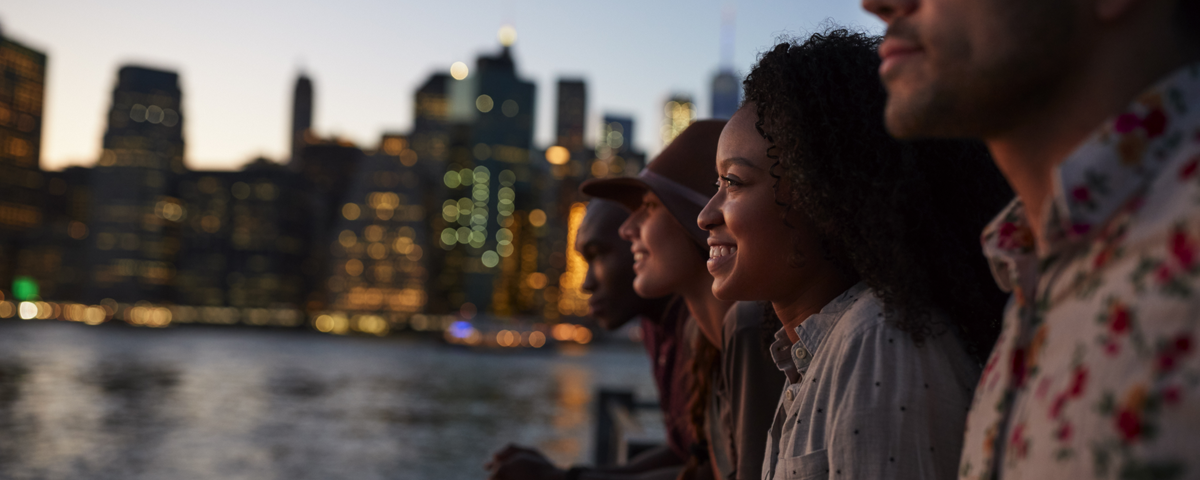From the beginning, Responsible Tourism has been about more than the environment. In the Cape Town Declaration, the founding document of what has become the Responsible Tourism Movement, we recognised the ‘global challenge of reducing social and economic inequalities’. The Declaration points to the importance of being culturally sensitive, endeavouring to make tourism an inclusive social experience, of travelling with respect and maintaining and encouraging social and cultural diversity.
The UNWTO’s Global Code of Ethics calls, in Article 1, for “understanding and promotion of the ethical values common to humanity, with an attitude of tolerance and respect for the diversity of religious, philosophical and moral beliefs, are both the foundation and the consequence of responsible tourism.”
It is fair to say that the Responsible Tourism Movement has been slow to take up the issues which arise from systemic racism; it is a broad agenda. The focus of Responsible Tourism is on identifying and sharing solutions. Tourism reflects the societies from which tourists originate and the societies to which they travel. If there is racism in society, then there will be racism in tourism.
The film of George Floyd dying in a chokehold reignited the Black Lives Matter campaign created in 2013 and grew it into a global movement. Sadly there has since been plenty of incidents to fuel the movement revealing the extent of racism. The response to the BLM movement has shown how much racism still exists in many societies.
I have been gathering voices from around the world, providing an opportunity for people to talk about their experience of racism. There is a playlist of interviews available on YouTube. If you would like to be interviewed to share your experience or solution, please get in touch.
I had thought that we could at Virtual WTM focus on solutions and next steps. However, it became clear from some of the questions to the panel, and from messages sent subsequently to our panellists, that this is not the case. There are still people in the industry who are in denial or don’t regard eliminating prejudice in our industry as a priority. So, we need to raise awareness of the issue as well as focussing on solutions.
We are an industry which exists because the world is diverse, our industry benefits from diversity, and we thrive because people want to travel to visit other peoples’ places, experience their culture and to see how they live. No longer do tourists venture abroad only to flop in the sun and lie by the pool. The growth in experiential tourism has broadened and increased demand for experiences which enable people to know more of the lives of others.
As the panel at WTM Virtual revealed, there are a series of issues which arise for tourism from racism; there are challenges and opportunities.
JacqueRae Hill talks movingly about what it feels like to watch racism happen and why it is important to intervene and about the value of conversation in addressing racism and discrimination.
Fazal Bahardeen of CrescentRating pointed to the size of the Muslim travel market and of the panellists made the same point. It makes no business sense to ignore markets, especially in today’s more challenging trading conditions. Reaching out to particular market segments is something the industry does all the time. Ask yourself if you would be likely to book a holiday or hotel if none of the images had people like you in them? If hotels can provide gluten-free and vegan menus, why do so few offer Halal?
Keith Henry of the Indigenous Tourism Association of Canada points out that authentic indigenous tourism experiences can only be developed and provided by indigenous people. As he so eloquently puts it: “If it is about us, it had better not be without us.”
Martinique Lewis, of the Black Travel Alliance, talked about the lack of diversity in the outbound industry and in the management of the inbound sector. Our industry can expect to be called out on this issue if we fail to make significant progress. Some businesses will benefit from addressing the issues; others will miss out.
Uwern Jong of OutThere pointed to the role that senior LGBTQ+ people in the industry had played in countering discrimination and developing and marketing inclusive products. He argued that advances in racial diversity in our industry would only happen if company boards reflect the diversity of source markets and destinations. Allyship is an essential part of the solution and one we need to learn to use. We need to champion leaders too, and those who make it to the top need to use their leadership position to help others.
The writer Alex Temblador steered the diverse panel brilliantly to raise the challenges and opportunities – we need to build on this foundation to look in more detail at solutions, as well as continuing to raise awareness of the issues.
Our industry thrives on the diversity of our world – we need to ensure that we are diverse and inclusive, to build a better industry and provide better, more responsible, tourism.
Uwern Jong and Alex Temblador co-authored this blog.
We shall be organising another panel discussion to discuss solutions –if you would like us to email you about the planned online panel, please register your interest here



What a heart-warming blog ! Tackling racism and other human discriminating tendencies from the Hospitality and Tourism industry will not only make it a responsible industry, it would create a convivial atmosphere for all stakeholders in the industry and bring the world together as one entity of trust, oneness and one big family with common goal to live and interact in harmony.